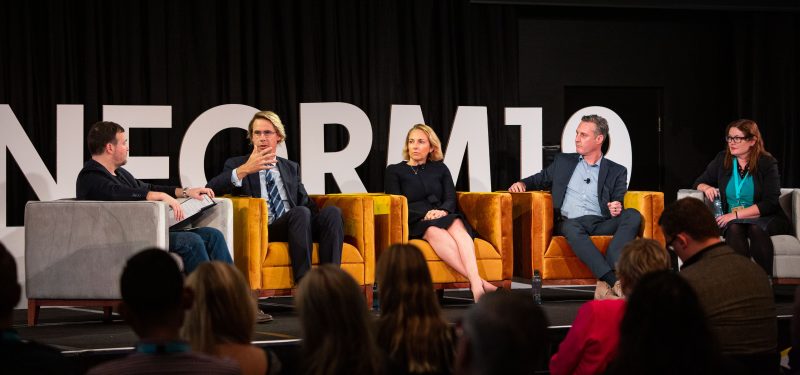Nine’s Lizzie Young hits out at Facebook content partnerships and says an intervention is needed
Nine’s managing director of commercial partnerships, Lizzie Young, has spoken out about the broadcaster’s partnership with Facebook which sees it create an exclusive daily news program for the social media platform’s Watch tab.
Nine’s daily news program 9 News Watch, hosted by Sylvia Jeffreys, airs at 8pm weeknights on the platform, and only gets a watch time of 20 seconds according to Young, who called the entire experiment “not meaningful”.

Young [centre] spoke out about the relationship between Facebook and broadcasters at the Inform 19 News Media event


Great reporting and summary Hannah, was in the audience.
You can’t hide from where audiences live…
If there’s a more aggressive and entitled media company than nine I’m yet to see it. The aggressive, alpha, blokey culture very much alive.
Funny that is your perception…. Their arch rival News is full of (and run by) whiney old ladies.
100% – Accurate reporting, I was also there. Lizzie was quite aggressive re Facebook and their positioning around spinning partnerships. If anyone has been to the new Facebook offices in Barangaroo with 8 chefs and 2 levels of ‘we’re so much smarter’ indulgence you’ll see that Facebook the American company sending payments to Ireland, has eaten up the Australian advertising industry’
Have never understood why newspaper and television media co-operate or promote Facebook or Google. It’s like letting the fox gnaw on an appendage because it’s hungry – and you’re too lazy to fight or run……
There are newspapers which demand Facebook logins just to insert comments. What sort of brainiac hires did this paper make? Surrendering it’s soul to the devil for some small measure of convenience.
Many, many people have NEVER had facebook accounts and will never have them. Pretty stupid to shut them out?
How many media companies recognize they are shunned for their Facebook collusion?